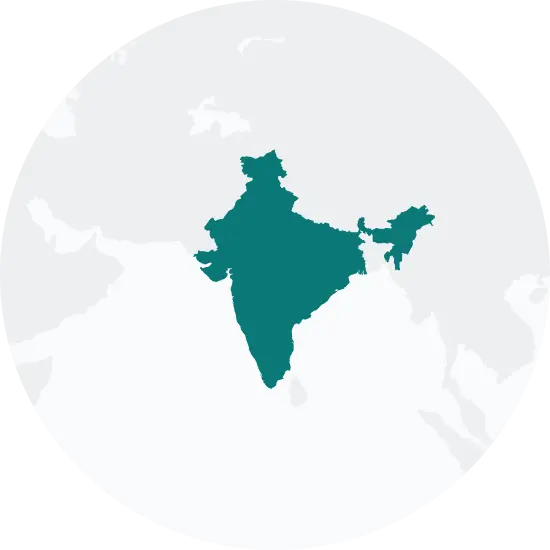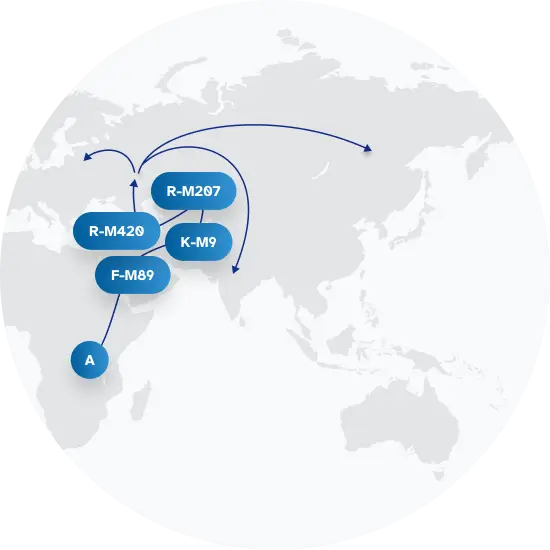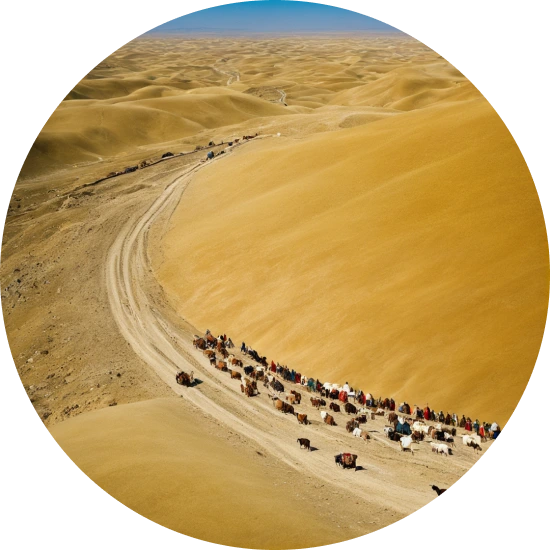Explore the Family Name Mehta
How common is the last name Mehta in the United States?
Based on the Decennial U.S. Census data, the popularity of the surname Mehta has noticeably increased between 2000 and 2010. In 2000, Mehta was ranked as the 3377th most popular surname, but by 2010, it had risen to the 2526th position, representing a significant increase of 25.2 percent. The number of individuals bearing the surname also expanded during this period from 9,691 in 2000 to 14,342 in 2010, reflecting a growth rate of nearly 48 percent. This increase was reflected in the proportion per 100k people which grew by 35.38 percent.
| 2000 | 2010 | Change | |
|---|---|---|---|
| Rank | #3,377 | #2,526 | 25.2% |
| Count | 9,691 | 14,342 | 47.99% |
| Proportion per 100k | 3.59 | 4.86 | 35.38% |
Race and Ethnicity of people with the last name Mehta
In terms of ethnic identity, the majority of individuals with the surname Mehta identified as Asian/Pacific Islander in both 2000 and 2010, according to the Decennial U.S. Census data. This group saw a slight increase from 90.56 percent to 92.90 percent over the ten-year span. Those identifying as having two or more races decreased by 41.69 percent, while those identifying as White also decreased by 18.87 percent. The percentage of Hispanic individuals with the surname Mehta saw a notable increase of approximately 62 percent, albeit starting from a small base of 0.42 percent. The Black population with this surname decreased by 40.62 percent. Interestingly, there was a substantial rise in the American Indian and Alaskan Native population who carry the Mehta surname, with an increase of 163.64 percent, albeit still remaining a tiny fraction of the overall population.
| 2000 | 2010 | Change | |
|---|---|---|---|
| Asian/Pacific Islander | 90.56% | 92.9% | 2.58% |
| White | 4.08% | 3.31% | -18.87% |
| Two or More Races | 4.51% | 2.63% | -41.69% |
| Hispanic | 0.42% | 0.68% | 61.9% |
| American Indian and Alaskan Native | 0.11% | 0.29% | 163.64% |
| Black | 0.32% | 0.19% | -40.62% |
Mehta ancestry composition
23andMe computes an ancestry breakdown for each customer. People may have ancestry from just one population or they may have ancestry from several populations. The most commonly-observed ancestry found in people with the surname Mehta is Northern Indian & Pakistani, which comprises 78.0% of all ancestry found in people with the surname. The next two most common ancestries are British & Irish (4.2%) and Iranian, Caucasian & Mesopotamian (2.8%). Additional ancestries include French & German, Southern Indian & Sri Lankan, Gujarati Patidar, Eastern European, and Southern Indian Subgroup.
Ready to learn more about your ancestry? Get the most comprehensive ancestry breakdown on the market by taking our DNA test. Shop 23andMe
| ANCESTRY BREAKDOWN | COMPOSITION |
|---|---|
| Northern Indian & Pakistani | 78.0% |
| British & Irish | 4.2% |
| Iranian, Caucasian & Mesopotamian | 2.8% |
| Other | 14.9% |

Possible origins of the surname Mehta
Your DNA provides clues about where your recent ancestors may have lived. Having many distant relatives in the same location suggests that you may all share common ancestry there. Locations with many distant relatives can also be places where people have migrated recently, such as large cities. If a large number of individuals who share your surname have distant relatives in a specific area, it could indicate a connection between your surname and that location, stemming from either recent ancestral ties or migration.
Based on 23andMe data, people with last name Mehta have recent ancestry locations spanning a few countries, mostly in India, and Pakistan.
| RECENT ANCESTRY Location | Percentage |
|---|---|
| Gujarat, India | 28.60% |
| Maharashtra, India | 26.50% |
| Punjab, Pakistan | 17.30% |
| Rajasthan, India | 16.30% |
| Sindh, Pakistan | 14.50% |
What Mehta haplogroups can tell you
Haplogroups are genetic population groups that share a common ancestor on either your paternal or maternal line. These paternal and maternal haplogroups shed light on your genetic ancestry and help tell the story of your family.
The top paternal haplogroup of people with the surname Mehta is R-Y7, which is predominantly found among people with Central & South Asian ancestry. Haplogroup R-Y7 is descended from haplogroup R-M420. Other common haplogroups include R-M417 and J-L26, which are predominantly found among people with European and European ancestry. Other surnames with similar common haplogroups are: Shah, Kumar, Sharma, Joshi, Hussain, Rahman, Singh, Desai, Das, Nair.
The most common maternal haplogroups of people with Mehta surname are: H, M30, U7. These most commonly trace back to individuals of Central & South Asian and European ancestry.
 Paternal Haplogroup Origins R-M420
Paternal Haplogroup Origins R-M420Your maternal lineage may be linked to Yu Hong
During the 6th century AD the Persian Empire controlled trade along the Silk Road through its Central Asian province of Sogdiana, providing a vital trade link between China and Europe. Evidence suggests there was a genetic connection as well. Researchers extracted DNA from the remains of a chieftain named Yu Hong, who was buried about 200 miles southwest of Beijing in 592 AD. His burial epitaph indicated that Yu Hong had Central Asian ancestry — and his DNA revealed an even more exotic background. Yu Hong's mitochondrial DNA belonged to the U5 haplogroup, a branch of U that is concentrated in Europe. This haplogroup assignment is a sure sign that he had European ancestors on his mother's side, and demonstrated the vast range of haplogroup U from the west to the east.

What do people with the surname Mehta have in common?
Spoiler alert: it's complicated. People with the same last name are usually no more genetically similar than a randomly sampled group of people from the same population. That said, people with the same surname are more likely to have similar ancestries than randomly sampled individuals. The reason is the tendency of people with similar cultural or geographical backgrounds to preferentially mate with one another. That's why people who share a surname may be more likely to share traits and tendencies in common than people within the general population. Check out the percentages below to see the prevalences of tastes, habits, and traits of people with your surname compared with prevalences among 23andMe users.
Preferences
Traits
Habits
Wellness
Are health conditions linked to the last name Mehta?
The short answer is that, if there is an association between surname and health, it's usually more about your ancestry than your name. Individuals with a given surname are no more genetically similar than the general population but often have similar ancestries. The populations of people associated with those shared ancestries often have sets of genetic variations, also known as alleles, in common. Some of those alleles are associated with a greater likelihood of developing certain diseases.
Disease variant frequency by ancestry
Disease allele frequencies in populations associated with the surname Mehta are shown below. Important Note: not everyone with a disease allele will develop these health condition






















